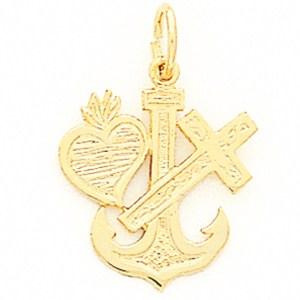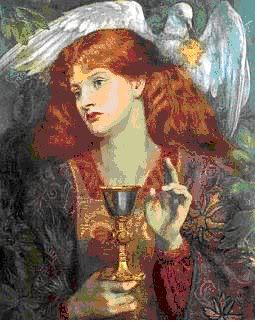Sophia: Goddess of Wisdom & God's Wife  Who is Sophia? Literally she is Wisdom, because the Greek word Sophia means "wisdom" in English. More than that, Sophia is the Wisdom of Deity. She has been revered as the Wise Bride of Solomon by Jews, as the Queen of Wisdom and War (Athena) by Greeks, and as the Holy Spirit of Wisdom by Christians. She is known as Chokmah (pronounced HOK-mah with the H being said like -ch in the name Bach) in Hebrew, and Sapientia in Latin. But just who is Sophia? Sophia is found throughout the wisdom books of the Bible. There are many references to her in the book of Proverbs, and in the apocryphal books of Sirach and the Wisdom of Solomon (accepted by Catholics and Orthodox, found in the Greek Septuagint of the early Church). She is Wisdom Incarnate, the Goddess of all those who are wise. Is it any wonder that Sophia is constantly associated with wise King Solomon? 1 Kings 4:29-31 tells us that God gave wisdom to Solomon, and that he became wiser than all the kings of the East and all the wise people of Egypt. Wisdom 8:2, 16, 18 tells us Solomon was considered to be married to Sophia. One of the many layers of symbolism attributed to the Song of Songs (also known as Song of Solomon or Canticle of Canticles) is that it speaks of Solomon's marriage to Holy Sophia. Wisdom 9:8-11 even tells us that Sophia instructed Solomon in building the Temple! The Jews revered Sophia. King Solomon even put her right in the Temple, in the form of the Goddess Asherah. However, after the brutal "reforms" of King Josiah described in 1st and 2nd Kings in your Bible, the veneration of Sophia went underground. Josiah slaughtered all her priests and priestesses and destroyed all her shrines and places of worship. But Sophia adherents remained active in the "underground stream" for centuries even while patriarchal Christianity held total sway in the Western World. Thanks to her continuing presence in the world and her presence in the Bible, veneration of Sophia surfaced in the Eastern Christian tradition with the construction of the Hagia Sophia cathedral in Constantinople (now a Muslim museum in Instanbul). The Russian Catholic liturgical service to Sophia combined with the assumption of Mary on May 15. The Russian Orthodox Church has also begun a school of "Sophiology" to explore the thealogy (spelled with an "a") of Sophia without contradicting the Russian Orthodox theology. Yet the Eastern Christians are not the only Christians to venerate Sophia. Sophia was very likely venerated by early Followers of the Way, and her veneration has survived in the West today in the form of Gnosticism. Gnostics see her as one of the aeons, one of the quasi-deities who live in the ethereal realm known as the pleroma. Gnostics believe that she gave birth to or brought about the creation of a negative aeon, who later came to be called an archon, called the Demiurge, creator and ruler of this world. Gnostics see the Demiurge as the God of the Old Testament, with his strict rules and chains that bind the people of the Earth. Gnostics believe that Sophia and the Father God (not the Demiurge) sent Yeshua to right this wrong. In Gnostic tradition, Sophia plays a very active role in our world.
|




